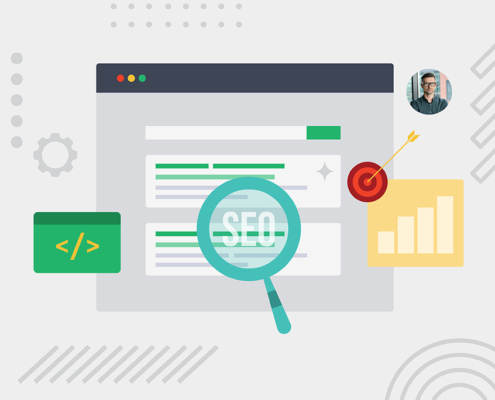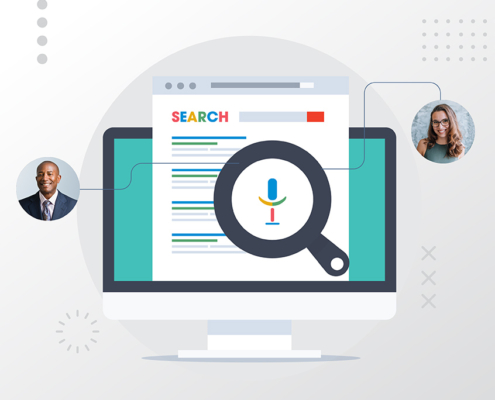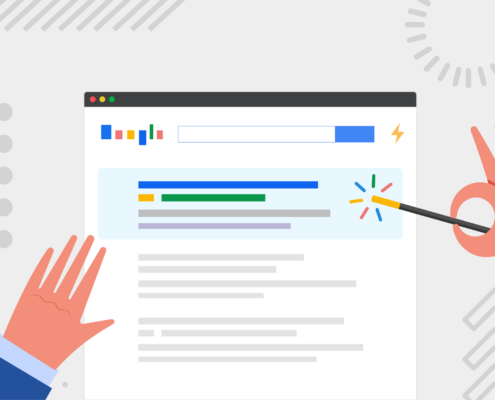

Running PPC campaigns can feel like a juggling act. You’re trying to maximize clicks, manage your budget, and get the conversions you need, all while tweaking ad copy and keeping your landing pages up to snuff.
What if I told you that with just a few simple tweaks, you could drastically improve your results? Sounds too good to be true? Well, it’s not. Below, we’ll dive into 9 actionable tips you can use to fine-tune your PPC campaigns and see better ROI without losing your mind.
Understanding the Basics of Paid Search and PPC
Paid search, or Pay-Per-Click (PPC) advertising, is exactly what it sounds like—you pay every time someone clicks on your ad. It’s a fast way to get your business in front of people who are searching for the products or services you offer. With platforms like Google Ads, you can show up at the top of search results for specific keywords, making PPC a great way to attract traffic quickly.
The beauty of PPC is in its flexibility. You can target users based on location, behavior, or even the device they’re using. And unlike traditional advertising, which takes a “spray and pray” approach, PPC lets you hone in on a specific audience and track results in real time.
What’s the Difference Between PPC and SEO?
While PPC is all about paying for visibility, Search Engine Optimization (SEO) focuses on organically improving your website’s ranking on search engine results pages. Think of PPC as renting space at the top of Google, while SEO is like building your own house there.
PPC has the benefit of speed—you get instant visibility as soon as your campaign goes live, while SEO can take months to yield results. On the other hand, SEO tends to be more cost-effective over the long run since you’re not paying for every click. A balanced strategy includes both SEO and PPC working together to dominate search engine results.
9 Tips to Optimize Your PPC Performance
Now that you understand the basics, let’s get into the good stuff—how to optimize your PPC campaigns to get the best bang for your buck.
Tip #1: Segment Your PPC Account into Separate Campaigns and Ad Groups
If your PPC account isn’t organized, you’re throwing away opportunities. Instead of creating one giant campaign, break your account into smaller, focused campaigns and ad groups based on your products, services, or audience. This allows you to tailor your ads to specific customer needs and allocate your budget to the top performers.
For example, if you offer both software and consulting services, these should be in separate campaigns. Why? The audience and keywords are different; separating them helps you create more relevant ads. This improves performance and helps you optimize your budget by focusing on what works.
Tip #2: Always Test Your Ads
Testing is the secret sauce to PPC success. Small changes can make a big difference, so consistently run A/B tests to see what resonates with your audience. Try testing different headlines, CTAs, or even the images you use.
For example, swapping “Get Started Today” with “Sign Up Now” could lead to a noticeable improvement in click-through rates. But don’t stop there—keep refining based on your results, and ditch underperforming ads before they drag down your campaign.
Tip #3: Group Keywords by Relevance
Group your keywords based on relevancy to get the most out of your PPC campaigns. By organizing your keywords into tightly themed ad groups, you ensure that your ads speak directly to the searcher’s intent.
For example, if you sell running shoes, group keywords like “running shoes” and “trail running shoes” together, but keep “tennis shoes” in a separate ad group. This improves your ad relevancy and helps you rank higher while keeping your costs down.
Tip #4: Use Ad Extensions for More Visibility
Ad extensions are an easy win to boost your PPC performance. These extra bits of information make your ad more helpful to users and increase its size, making it more noticeable on the search results page. Common extensions include site links, call buttons, location info, and reviews.
For example, a call extension allows mobile users to contact you directly with a single tap, which is great if you’re running a local business or providing immediate services. Sitelink extensions can direct users to other relevant pages on your website, improving the chances of finding exactly what they’re looking for without extra searching.
Tip #5: Use Remarketing to Re-Engage Potential Customers
Remarketing (or retargeting) is a powerful tool that lets you target people who have already visited your website but didn’t convert. These users are already familiar with your brand, making them more likely to return and make a purchase if they’re reminded.
For instance, if someone visited your site and looked at a specific product but didn’t complete the purchase, you can show them ads for that product while they browse other sites. Remarketing keeps your brand in mind and increases conversion rates since you’re targeting warm leads rather than cold prospects.
Keep Reading: All About Remarketing
Tip #6: Perform Routine Account Maintenance
Your PPC campaigns aren’t a “set it and forget it” situation. You need to check in regularly to make sure your ads are performing well and that you’re not wasting money. Make it a habit to add negative keywords, tweak ad copy, and monitor landing page performance.
For example, if you notice that a lot of irrelevant search terms are triggering your ads (like people searching for “free shoes” when you’re selling premium ones), add those terms as negative keywords. This prevents your ads from showing to the wrong audience and helps conserve your budget for better leads.
Tip #7: Optimize Your Bids Based on Performance
Finding the right bid can be tricky, but adjusting your bids based on performance can make a big difference. Not all ad positions are created equal—being in the top spot might seem ideal, but it can be costly and not always effective. Sometimes, the second or third position produces better results with fewer “tire kickers.”
Start by bidding lower on broad match keywords and increase bids on exact match keywords that convert well. You can also use bid adjustments for certain times of day or specific devices if you see patterns in your conversion data.
Take your marketing to the next level with expert help from Abstrakt Marketing Group. Our inbound marketing services are designed to drive results and grow your business.
Tip #8: Optimize Your Landing Pages
Your PPC campaign doesn’t end when someone clicks on your ad. The landing page is just as important—users will bounce if it’s slow, irrelevant, or confusing. Make sure your landing page matches the intent of your ad and provides a seamless experience from start to finish.
For instance, if your ad promotes a discount on running shoes, don’t send users to a generic homepage. Direct them to a landing page about those running shoes featuring the discount front and center. This increases the chances of a conversion and improves your ad’s performance.
Keep Reading: What You Need to Know About Landing Pages
Tip #9: Use Geographic Targeting for Local Optimization
If your business serves specific locations, using geographic targeting ensures your ads are only shown to people in relevant areas. This can help you stretch your ad budget by focusing on areas where you’re more likely to generate leads.
For example, if you run a business in Chicago, you don’t want your ads showing up for users in New York. Use location targeting to ensure your ads appear only to people searching within your service area. You can even adjust your bids for high-performing locations to maximize your results.
Key Takeaways
Optimizing your PPC campaign doesn’t have to be overwhelming. By following these core strategies, you can ensure your ads are reaching the right people and driving real results for your business:
- Segment and structure your PPC campaigns: Break your PPC account into relevant campaigns and ad groups to keep things organized and improve performance.
- Test ad performance regularly: Consistently test different ad variations to find the best-performing copy and visuals for maximum engagement and conversions.
- Use ad extensions: Take advantage of sitelinks, call buttons, and location extensions to improve visibility and increase click-through rates.
- Leverage remarketing: Target visitors who have already shown interest in your website or products, increasing the likelihood of conversion.
- Perform routine maintenance: Regularly add negative keywords, adjust bids, and monitor ad performance to ensure your budget is being spent effectively.
- Optimize bids based on performance: Bid higher for exact match keywords and lower for broad match terms to maximize ROI without overspending.
- Improve landing pages: Ensure your landing pages align with your ad’s message, load quickly, and offer a seamless user experience.
- Use geographic targeting: Show your ads only to users in specific locations where your business operates, and adjust bids for high-performing areas.
At Abstrakt, we specialize in helping businesses maximize the potential of their PPC campaigns. Whether it’s crafting compelling ads, setting up remarketing strategies, or managing ongoing optimization, our team of experts is here to make sure your paid search efforts deliver the best possible ROI. Let us take the guesswork out of PPC so you can focus on what you do best—running your business.










